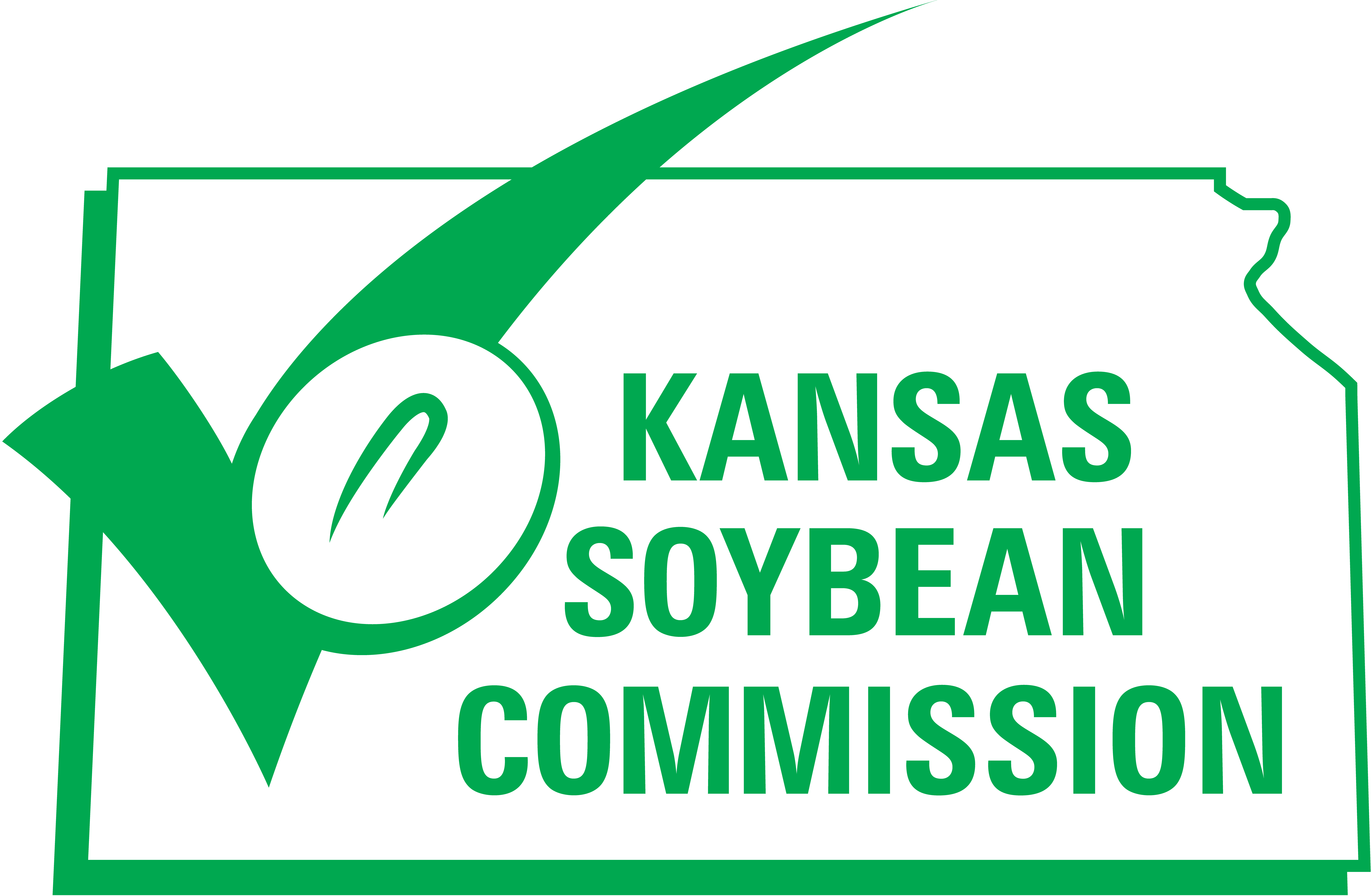Kansas Soybean Commission establishes direction for fiscal year 2026
Board focuses on opportunities to improve, move soybeans
Kansas Soybean Commissioners convened in early December at the Kansas Soybean Office in Topeka to deliberate funding proposals and establish the budget for the 2026 fiscal year, which runs July 1, 2025, to June 30, 2026.
The board of volunteer farmer-leaders worked through 41 funding proposals from researchers, agricultural educators and national industry groups looking to bring value to the soybean growers, buyers and consumers. Lower prices and tough growing conditions in recent years significantly reduced soybean checkoff collections available for investment.
Following critical conversation, 27 projects were selected for implementation with the start of the next fiscal year. Objectives for the selected projects focus on field research to enhance crop viability, educational experiences to engage youth and teachers, and market development initiatives to build demand domestically and abroad. Additionally, Commissioners approved their core program budget, partially executed by contract with the Kansas Soybean Association, to implement state projects not related to membership or policy.
“We had a lot of extremely good projects presented at this meeting,” Chairman Keith Miller, Great Bend, says. “Our frustration with the price and weather challenges is that we currently do not have as many funds as we would like to so we can greenlight more of these projects. We do not want our researchers to back off from submitting proposals. We should see a rebound in funds. We did our best to fund numerous quality projects with the capital we have to benefit soybean growers in our state.”
The soybean checkoff, in which farmers contribute one-half of one percent of the sale price of their soybeans, generates the funding available for investment each year. The objective of the soybean checkoff is to improve profitability for soybean farmers, which can be accomplished through improving efficiency of soybean production and finding new ways to use the crop after harvest, among other directives.
The collective work of the national soybean checkoff has grown the impact of U.S. soybeans to add $9.8 billion in value to the U.S. gross domestic product, as announced by the United Soybean Board Dec. 6.
“The soybean checkoff exists to promote market development and drive research that focuses on managing disease, pests and more,” Miller says. “It is very important to try to get all our priorities in line with what we need for production. That’s where your checkoff dollars are making a huge difference for the future of the soybean industry.”
Further details about individual projects included in the budget are expected to be released ahead of the fiscal year. Information about how the soybean checkoff is working on behalf of farmers is always available at www.kansassoybeans.org or by contacting Administrator Kaleb Little by phone at 785-271-1040.
